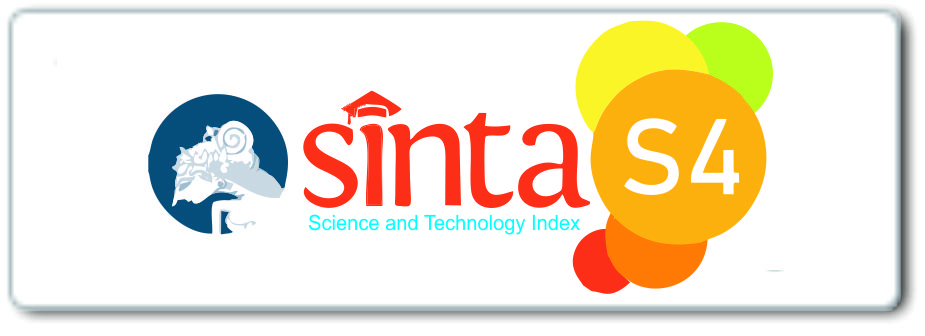PENDEKATAN MATEMATIS DALAM MENGIDENTIFIKASI RENDAHNYA PEMAHAMAN PESERTA DIDIK DALAM MANAJEMEN WAKTU
DOI:
https://doi.org/10.24256/kelola.v4i2.866Keywords:
Rendahnya Pemahaman, Manajemen Waktu, Pendekatan MatematisAbstract
References
Achmad Basuki dan Nana Ramadijanti. Metode Numerik dan Algoritma Komputasi. Yogyakarta: Andi Offset, 2005.
Afifuddin dan Beni Ahmad Saebani. Metodologi Penelitian Kualitatif. Bandung : Pustaka Setia, 2012.
Ainurrahman. Belajar dan Pembelajaran. Bandung : Alfabeta, 2013.
Anwar Sanusi. Metodologi Penelitian Bisnis. Jakarta : Salemba Empat, 2016.
John Suprihanto. Manajemen, Yogyakarta: Gadjah Mada University Press, Cet. ke-1, 2014.
M Quraish Shihab. Lentera Al-Quran: Kisah dan Hikmah Kehidupan. Bandung : Mizan Pustaka, 2008.
Nadirsyah Hosen dan Nurussyariah Hammado. Ashabul Kahfi Melek 3 Abad Ketika Neurosains dan Kalbu Menjelajah Al-Quran. Jakarta : Noura Book Publising, 2013.
Renaldi Munir. Metode Numerik. Bandung: Informatika, Rev.3, 2010.
Sardiman. Interaksi dan Motivasi Belajar Mengajar. Jakarta: Rajawali Pers, 2011.
Sigit Purwanto. Pocket Mentor Manajemen Waktu. Jakarta: Esensi Erlangga Group, 2008.
Suharsimi Arikunto. Prosedur Penelitian Suatu Pendekatan Praktik. Jakarta : Rineka Cipta, 2006.
Sukardi. Metodologi Penelitian Pendidikan Kompetensi dan Praktiknya. Jakarta : Bumi Aksara, 2013.
Toto Tasmaran. Kecerdasan Ruhaniah. Jakarta: Gema Insani Press, 2001.
V.Wiratna Sujarweni. Metodologi Penelitian. Yogyakarta : Pustaka Baru Perss, 2014.
Diana Dwi Nurhidayati. 2016. Peningkatan Pemahaman Manajemen Waktu Melalui Bimbingan Kelompok Dengan Teknik Problem Solving pada Siswa. Jurnal Psikopedagogia, Vol. 5, No. 1: 24-32. (diakses 24 Juli 2019).
Yuniarsi Rahayu. 2011. Penerapan Metode Numerik Pada Peramalan untuk Menghitung Kooefisien-Koefisien pada Garis Regresi Linier Berganda. Seminar Nasional Teknologi Informasi & Komunikasi Terapan 2011 (Semantik 2011). (diakses 24 Juli 2019).
https://kbbi.kemdikbud.go.id/entri/pendekatan. (diakses 2 Agustus 2019).
https://kbbi.kemdikbud.go.id/entri/matematis. (diakses 2 Agustus 2019).




 This is an open access article under the
This is an open access article under the 